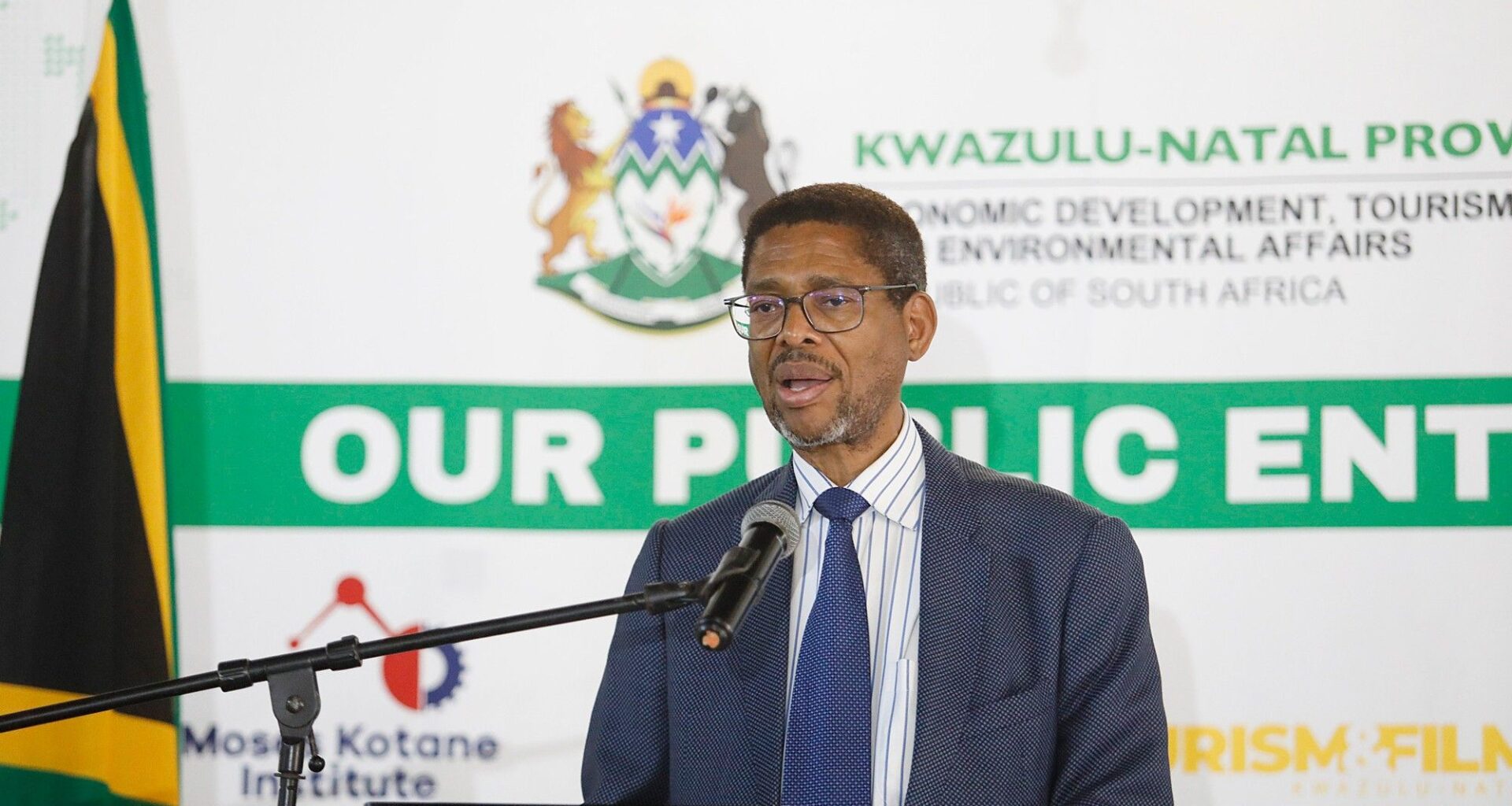Philani Mazibuko|Published 15 minutes ago
The imposition of 30% tariffs by the United States and the non-renewal of AGOA have directly impacted exports from KwaZulu-Natal, and the provincial government has taken measures to identify alternative markets to safeguard the province’s trade interests.
Explaining to delegates the steps that have been implemented by the KZN government to diversify the economy, the MEC for Economic Development, Tourism and Environmental Affairs, Musa Zondi, told delegates at the KZN Investment Conference in Durban that the government has revised its Country Targeting Strategy to identify alternative markets.
“Recent geopolitical developments, including the imposition of 30% tariffs by the United States and the non-renewal of AGOA, have directly impacted our exports. The diversified nature of our economy, spanning manufacturing, agriculture, mining, tourism, and renewable energy, provides resilience in response to economic volatility,” said Zondi.
He added that the KZN government has taken a decision to broaden markets in Africa, the European Union, BRICS countries, the Americas, and Asia.
“Through Trade & Investment KwaZulu-Natal, we have revised our Country Targeting Strategy to identify alternative markets and safeguard our trade interests. While nearly 90% of our exports are absorbed within Southern Africa, we are now prioritising broader African markets to leverage opportunities presented by the African Continental Free Trade Area, while exploring high-potential markets in the EU, BRICS+, the Americas, and Asia.
“We are strengthening our position in SACU and SADC through high-value exports such as vehicles and machinery, expanding into Eastern and Western Africa with cereals, oils, and essential oils, and exploring niche opportunities in Northern and Middle Africa. Our strategic significance extends beyond national borders,” said Zondi, adding that KZN operates within a dynamic global trade ecosystem.
Zondi said in 2024, the province recorded a trade deficit of R95.97 billion, with exports of R49.71 billion and imports of R145.67 billion.
“We achieved trade surpluses with the United States, France, and Mexico, reflecting our competitive strengths in manufacturing and agro-processing. With the G20 Summit just weeks away, KwaZulu-Natal is positioning itself to attract high-impact investment, expand exports, and create jobs.
“Our value proposition is compelling and multifaceted, making KwaZulu-Natal uniquely positioned to play an even bigger role in South Africa’s economy. We are strategically located with two world-class ports at Durban and Richards Bay, serving as gateways into the rest of Africa. Through our route development vehicle, Durban Direct, we are increasing air accessibility and improving connectivity to facilitate trade, tourism, and investment.
By enhancing KwaZulu-Natal’s accessibility, we lay the groundwork for sustained economic growth,” said Zondi.
Reacting to the KZN government trade strategy, economist Dr Mahmoud Youssef Baker said he strongly believes that the new strategy adopted by the provincial government to mitigate the heavy reliance on the USA, especially in terms of foreign trade, by opening new markets in Asia, South America, the European Union, and the BRICS group will be safe and successful.
“In this regard, some believe that it’s time for South Africa to focus on China as the second largest economy in the world, but this also could be risky for South Africa given the current political geography in the global economy, and the open conflict between the USA and China. Going forward, I think diversification is the best strategy to protect our economy and make it self-sustainable,” he said.

